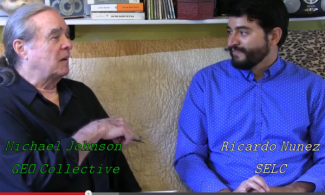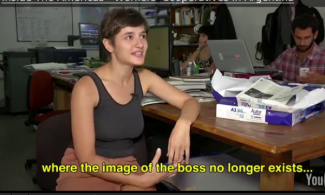by Josh Davis
We're posting an important piece today from the website Venezuelanalysis.com that looks at some of the effects of the Chavez government's support program for cooperatives there. Given that municipal governments around this country—from New York City, to Madison, WI, to Richmond, CA—are now adding line items to their budgets for cooperative development, it might behoove us to pay attention to the lessons learned in Venezuela, and to put some real thought into avoiding or mitigating the problems that cooperators in Venezuela have faced.
The gist of the article is that the Chavez government threw a bunch of money at co-op development and it backfired on them--leading the administration, in 2008, to shift resources into worker take-overs coupled with state-ownership and away from supporting cooperative ownership structures. This unfortunate result occurred because of problems on two fronts, according to the article.
First, there was the PR front. While government money led to the creation of a lot of successful co-ops, it also led to the creation of many failed co-ops. Opponents latched onto the failures and used them to attack the government's policies.
In 2006 SUNACOOP did a “census” to count how many co-ops were active – they were very disappointed to find that due to insufficient training, poor supervision, and lack of followup support, only around 50,000 cooperatives were actually functioning. Though it still represented the highest total for any country after China, the upcoming presidential elections prompted attacks from opposition media, who headlined “Venezuela is a Graveyard of Cooperatives!”
Secondly, the receipt of government funds has had the perverse effect of weakening resolve among co-op owners. We might call it the unintended consequences of paternalism:
Delgado said, “A research study in 2005 by Centro Gumilla, a Jesuit Center, found that 80 percent of the cooperatives that function in Venezuela did not receive any financial support from the government. This is a situation where receiving money from the government seems to have a detrimental effect on the strength and determination of the cooperative workers.”
These are two problems that it would not surprise me to find happening here in the U.S., as well. I hope that those better situated to draw parallels between events in Venezuela and here will chime in.
Despite the set-backs, the cooperative sector in Venezuela is still growing. The reason for that may have more to do with culture than with government funds, as the author explains:
...the vast majority of poor and middle class Venezuelans have, at one time or another, participated in a SAN, a BOLSA or a SUSU. These are three names for the same thing, a system of trust whereby ten friends agree to each contribute a certain amount weekly for ten weeks, and the total is given to one of the members in rotation...No contract is ever signed, and the organizer of the SAN is always the last member to receive it. Millions of Venezuelans have participated in this simple community cooperative venture, so they have a positive idea that cooperatives can work even without financial support.
The SUSU is what I think Len might call a “strulture”: a cooperative structure that promotes cooperative culture, which can then open the way for other forms of cooperation.
This is an important piece of reporting from one of the major laboratories for cooperative economics that exist today, and it contains more than one cautionary tale that seem highly relevant to events in the U.S. I encourage you to read the article in full here.





Add new comment